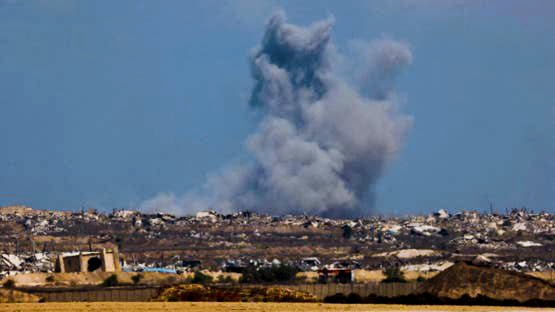American and Israeli officials revealed that U.S. President Donald Trump does not oppose Israeli Prime Minister Benjamin Netanyahu's plan to launch an extensive military operation aimed at fully occupying the Gaza Strip, despite international warnings and objections from within the Israeli military establishment.
According to "Axios", the Israeli security cabinet will vote today, Thursday, on the final approval of the plan, which includes an unprecedented expansion of the war, at a time when Trump has decided not to intervene and leave the decision to the Israeli government.
The new plan targets additional areas in the center of the strip, and it is expected to take several months, potentially leading to the displacement of about one million Palestinian civilians.
It also includes military movements in areas believed to have hostages, raising fears for their lives.
At the same time, Netanyahu faces significant international pressure to stop the fighting, in addition to internal objections from senior Israeli military leaders, led by Chief of Staff General Eyal Zamir, who warned that the operation could lead to significant casualties among soldiers and result in direct Israeli military rule in Gaza.
American sources reported that Trump was influenced by a video published by Hamas showing one of the hostages being forced to dig his own grave, prompting him to adopt a stance that allows Israel to move freely without U.S. intervention.
However, sources confirmed that the Trump administration does not support Israel's plans to annex any parts of the Gaza Strip.
The Israeli army shows clear reluctance to carry out the comprehensive strike for fear of accidentally killing hostages, and General Zamir indicated that such a step could lead to long-term humanitarian and military disasters.
On the humanitarian side, the Trump administration is focusing its efforts on addressing the famine crisis in Gaza, despite the difficulty of implementing an effective relief plan amid escalating military operations.
The administration intends to increase funding for the Gaza Humanitarian Foundation (GHF) to establish new relief centers for displaced Palestinians, while U.S. Ambassador to Israel Mike Huckabee announced that Washington will double the number of aid centers affiliated with the United Nations Population Fund from 4 to 16 centers.
For its part, relief organizations and the United Nations have urged Trump to pressure Israel to reopen previous channels for delivering humanitarian aid, which Israel has almost completely closed, warning that new solutions do not compensate for the traditional relief channels that are essential given the catastrophic conditions in the strip.

